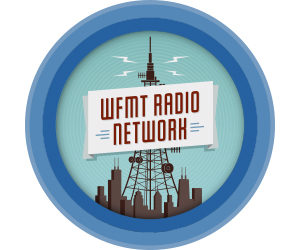Matters of Opinion
Remembering Howard Zinn on Veterans Day
 Monday November 11 marks the observance of Veterans Day, the official holiday that honors people who have served in armed services of the United States. Since I never served in the armed services, it’s traditionally been a holiday about which I had absolutely nothing to say, or perhaps more honestly, a day about which I thought it best to keep my opinions to myself. I have nothing but praise for veterans themselves, as well as healthy helpings of sadness for their sacrifices and appreciation for their service. But traditionally the celebration of Veterans Day, and it’s sister holiday, Memorial Day, have been occasions marked by marching bands, eulogies, and patriotic rhetoric, a time I thought it best not to raise questions about war but to silently respect the men and women whose lives were often ruined by it.
Monday November 11 marks the observance of Veterans Day, the official holiday that honors people who have served in armed services of the United States. Since I never served in the armed services, it’s traditionally been a holiday about which I had absolutely nothing to say, or perhaps more honestly, a day about which I thought it best to keep my opinions to myself. I have nothing but praise for veterans themselves, as well as healthy helpings of sadness for their sacrifices and appreciation for their service. But traditionally the celebration of Veterans Day, and it’s sister holiday, Memorial Day, have been occasions marked by marching bands, eulogies, and patriotic rhetoric, a time I thought it best not to raise questions about war but to silently respect the men and women whose lives were often ruined by it.
But for many of us who stand in reverent silence at such occasions, there is often a very large and unmentionable invisible elephant standing right in front of us. Why, we never ask on these solemn rituals, are we not talking about the causes of the suffering and sacrifice, war itself, only the effects.
My reluctance to engage the topic is no different this year. I’ve never been to war. I’ve never been in the military so I avoid the issue entirely on days like Veterans Day because I don’t feel I have the authority to address it.
With that in mind, I thought I’d channel the thoughts and writings of someone who is eminently qualified to take on the topic, a veteran of world war two, and a friend of many years, Perhaps he was a friend of yours. His name was Howard Zinn. Always scholarly without being dense, always impassioned without being a scold, Howard’s writing always seemed to capture the essence of political situations with clarity. On the very subject I’m lamenting, he writes, that “Patriotism becomes the order of the day and those who question the war are seen as traitors to be silenced.” I would add, sometimes even by themselves.
Howard Zinn called himself “a eager bombardier” in World War Two and in spite of a what he refers to as a “bone deep hatred of war” he was “so anxious to get overseas and start dropping bombs that after his training in gunnery school and bombing school traded places with another man who was scheduled to go overseas” ahead of him. He felt the war was a mission of high principle for the rights nations to independence and self-determination. But after the was he began reading the history and started questioning of America’s own expansion through war and conquest: The Revolutionary War, which was not celebrated by native Americans, black slaves, or many American colonists who felt at least as oppressed by upper-class Americans as they did by the English.
Howard Zinn tells us that “the people who fight the wars are not the people who benefit from the wars.” This was certainly the case of the Mexican War, in which there were so many disaffected soldiers that General Scott woke up one morning on his final march on Mexico City to find that a full half of his army had deserted.
He reminds us that a lot of the people who volunteered for the Mexican War did so for the same reason that so many of the poor and working class people volunteer for the military today, because they hope their fortunes will improve as a result of enlisting.
In the textbooks, the Spanish American War was sometimes called “a splendid little war” because it lasted only three months. We did it to free the Cubans, Howard tells us, because we’re always going to war to free somebody. We expelled the Spaniards from Cuba, but we didn’t expel ourselves from Cuba.”
In the midst of the Civil War, another quote-unquote “good war” because the slaves were freed in the course of it, one part of the union army was fighting in the south while another was west, destroying Indian settlements and taking over Indian land. During the civil war, in which there were as many American deaths as in all other U.S. wars combined, more land was taken away from the Indians than in any other comparable period in history.
While Howard Zinn’s many books remind us of our country’s lack of innocence in war, he had no illusions about his own. He recalls a mission that he flew over France in the waning days of World War, in his own words, “unthinking and unfeeling, like a programmed robot.” Since the war was all but won, he suspects there one of the reasons for the massive raid was to try out a new weapon, which he later discovered was the first use of napalm in modern warfare.
So during veterans Day I’ll be suitably quiet, honoring the sacrifices of the men and women who went to war. But there’s way I’ll ever forgive the people who continue to send them.
I’m Ira Wood…and that’s my opinion.
Matters of Opinion are Ira Wood’s short, personal, often rather odd takes on current events. They wrap up the WOMR News on most Fridays at 12:30 PM and are available as podcasts HERE. Feel free to email Ira to tell him what you think.












